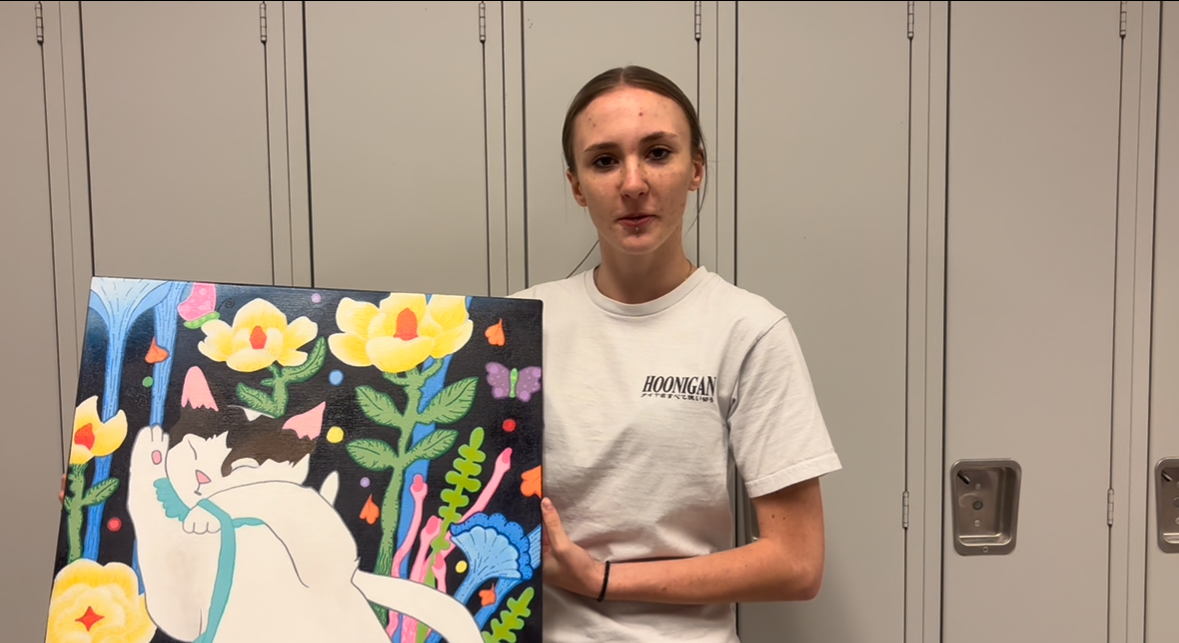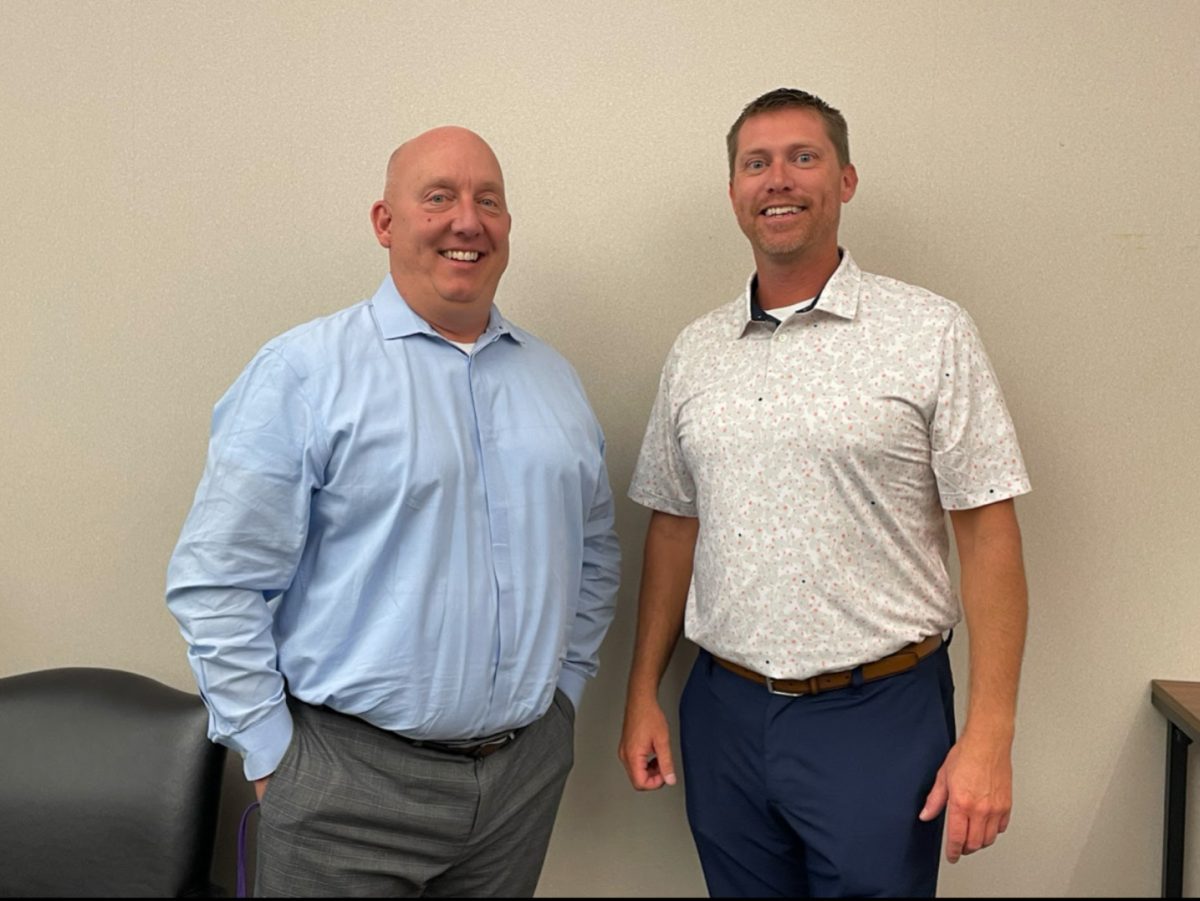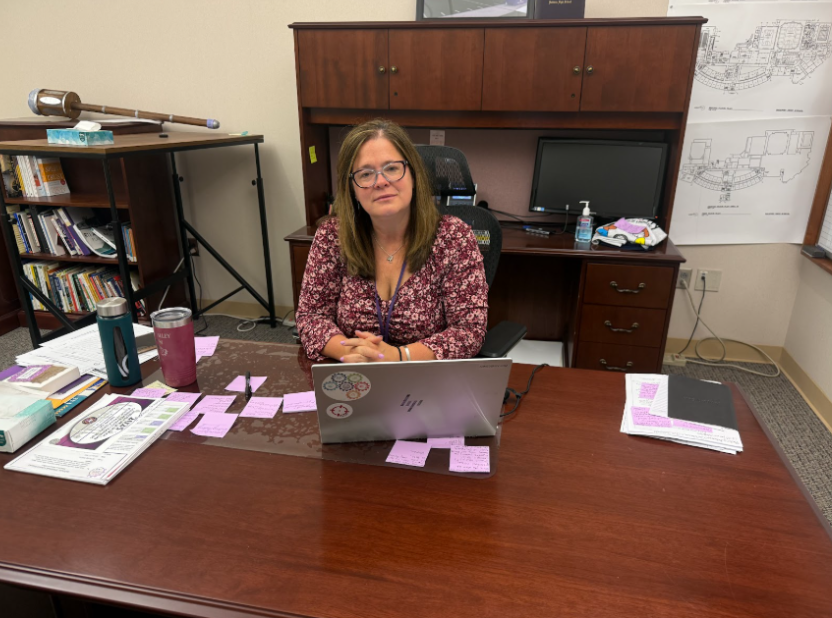With Republicans taking control of the Senate and possibly increasing their lead in the House, Donald Trump will have a good chance to win approval for his plans on immigration, the economy, and the U.S. Department of Education, Baldwin social studies teachers said today.
Trump won both the Electoral College and the popular vote on Tuesday, making him the first Republican to win the popular vote since George W. Bush in 2004. Several social studies teachers said the popular vote victory was surprising.
“I definitely underestimated his popular support throughout the country,” Kathleen Temme said. “I always thought the electoral win had a chance, but I wasn’t expecting the popular.’s
Fellow social studies teacher Adam Foote agreed.
“I had made some predictions before the election and I thought that Vice President Kamala Harris was going to win,” Foote said.
The margin of Trump’s victory sends a message from the American people, Temme said.
“They’re very frustrated with the economy and immigration as the main two issues,” she said.
Many previously undecided voters went with Trump likely due to these issues, Foote said.
“I think the biggest issue that I have heard people voted on was the economy,” Foote said. “I think that the Republicans were able to capture those ‘middle ground’ folks because of the economy being a number one issue.”
With Republicans potentially having control of both the Senate and House, it may be difficult for Democrats to have a say in any proposed new laws. The Supreme Court also features three Trump appointees, which could make legal challenges to Republican legislation or Trump executive orders difficult.
Temme predicted that Trump’s first plan of action will be to crack down on immigration.
“I think he will try with mass deportations. I don’t know how successful it will be with court challenges. But if he is successful, I think Americans will notice it immediately,” she said.
Social studies teacher Jared Lambie agreed immigration will likely be a priority for Trump.
“It’s been an issue since the ’90s and it’s never really been agreed upon. Immigration is something that needs to be fixed so that we can focus on other things,” Lambie said. “It takes away from so many other things that can be and need to be done,” he said.
However, he said that simply ending immigration will not fix the issue of immigration as a whole.
During the campaign, Trump proposed eliminating the federal Department of Education. Trump, along with many other Republican officials, believes that the Department of Education is an example of an overreaching federal government, and that the states should make their own decisions on education.
But Lambie said that Democrats and Republicans should look further into the issue before making definite decisions.
“The idea of getting rid of the Department of Education needs to be revisited,” he said. Eliminating the department would “give the impression that education is not important, at a time when we are going to need education to solve our global problems.”
If Democrats want to rebound in future elections, Temme thinks they need to work on their messaging.
“They need to learn how to talk to Americans in “red” areas, figure out what their issues are, and how to talk to them about what Democrats can do for them,” she said.
Democrats also need to do better in appealing to undecided voters or those in the political middle, Foote said.
“I think that there’s room to capture some people in the middle. The polar opposites of the parties have alienated middle ground voters and this year demonstrated that, more so for the Democrats than Republicans,” Foote said. “I think that the Democrats’ focus in the next four years needs to be finding that middle ground again.”
Temme’s hope is that Americans on both sides can agree to accept a new president, whether it is the one they had supported or not.
“It is possible to accept the outcome of the election no matter the outcome,” Temme said.

![Since Republicans are predicted to have control of the both houses of Congress, it may be difficult for Democrats to have a say in the laws being passed. [Trump signing SOS Act.jpg] by [Dan Sullivan] is licenced under [CC BY-ND 2.0].](https://purbalite.net/wp-content/uploads/2024/11/trum.jpg)














